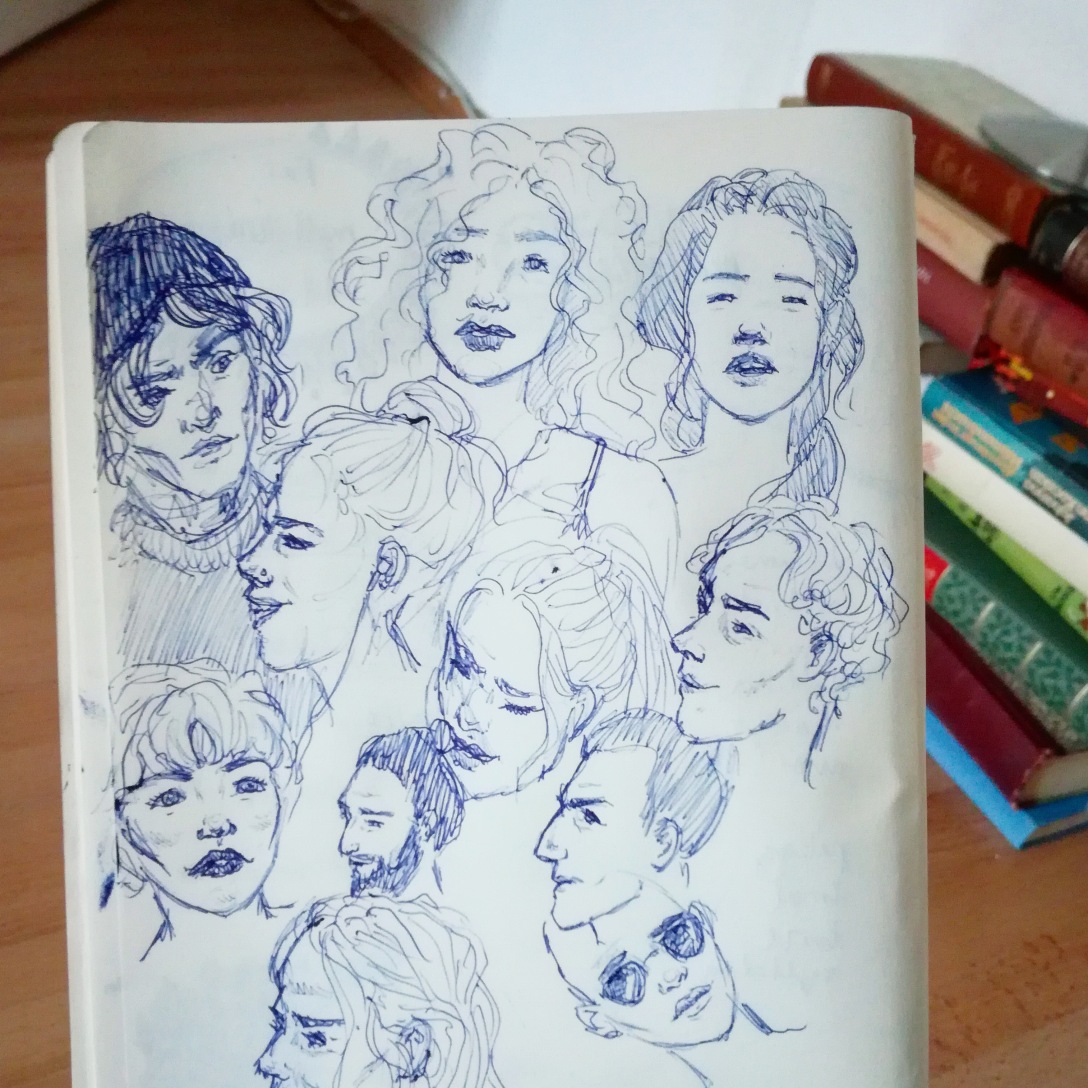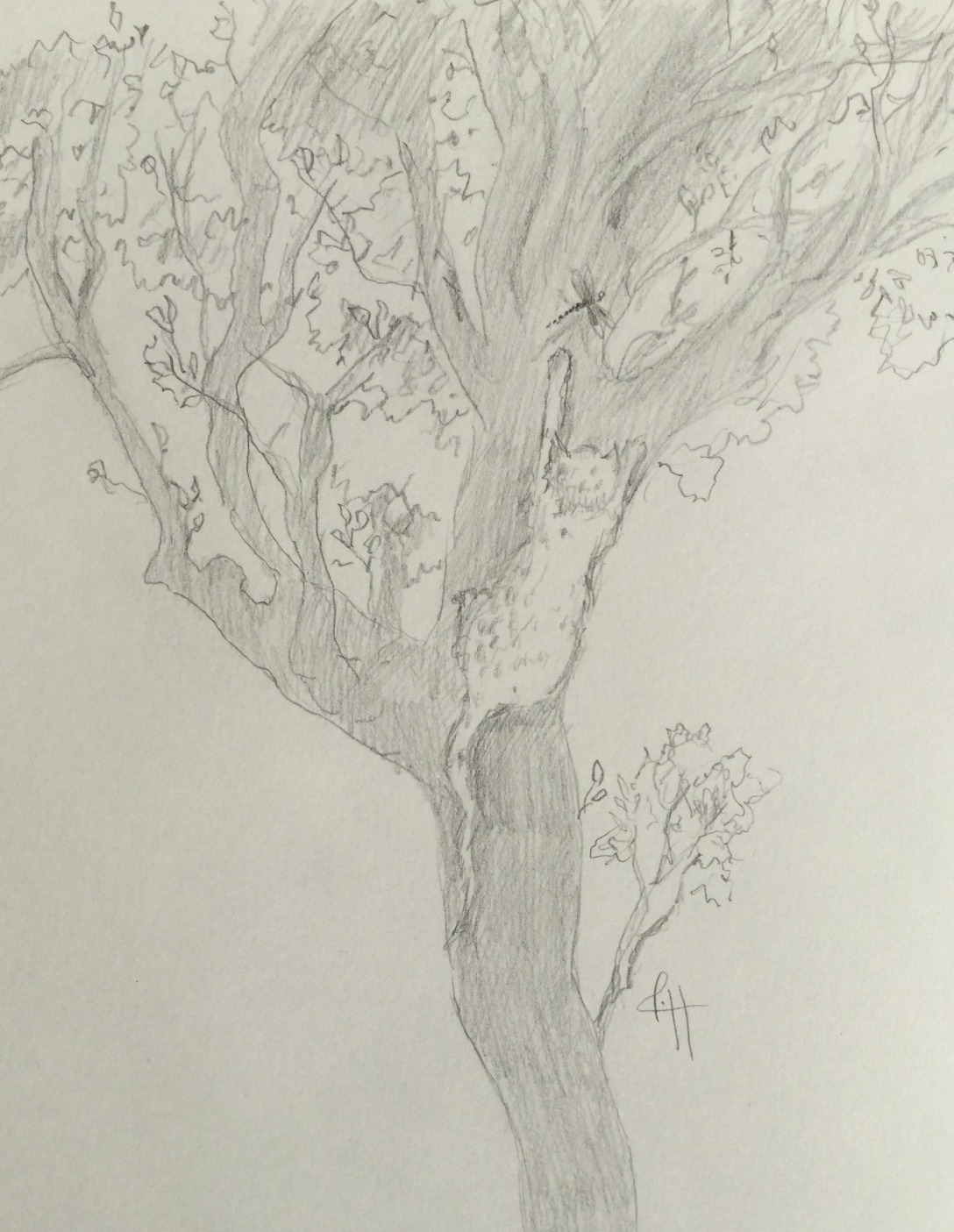A little while ago, I put down “The Guest Cat” by Takashi Hiraide, which I was reading, and asked myself: What does Hiraide do particularly well?
“The Guest Cat”, if you don’t know it, is a lovely, quiet book, originally written in Japanese, the cover of which was so bedazzled with reviewer’s flattery that I actually did my best not to read it. It’s like those youtube videoes that have in their title “you won’t be able to stop laughing”.
But I’d been wanting to read it for a long time, and once I was able to push away all the insisting voices shouting at me how wonderful it was, I did find that I liked it. But then, this isn’t a review. This is just me talking about something I think Hiraide does well in it.
The characters in “The Guest Cat” are few, and provided with hardly any backstory at all. They just are. A married couple. How they met was perhaps mentioned with five words. No description of their appearance. And the story is told from a vantage point sometime in the future, which makes the way memory works influence the way the story is told. Rather than giving an overload of detail, as one might when describing a character presently (or in the historical present) in a specific room, this story is told from memory. Several times, phrases such as “as I remember it” come up, and most of the story takes place in little episodes, where the things that haven’t stuck to the narrator’s memory, have been omitted.
All the same, the book is rich with specific detail and at times, it dives deep into this or that topic. This struck me as especially significant to the overall impact of the story.
These little “deep dives” include passages on, to name three examples: the story of the building where most of the story takes place, the intricacies of the current housing market in Japan (where the story takes place), and in a particular, unusual form of painting. Now why is this important?
I think, with a subdued, minimalist writing style, it is easy to go too far, thus ending up with a story that is not so much “gentle strokes” as it is too brittle to fly .Mind you, the minimalism is brilliant, thanks in part to the specific details. In a way, I think it is a kind of minimalism that things are specific – because if they really happened, as is what you’re asking the reader to believe, why go through the trouble of generalizing? For the actual narrator, it would be just as easy to say that the cat ate dried mackerels, or whatever it was, than, vaguely, “food”.
Anyway, moving on to the deep dives. They provide, I think, necessary ballast and realism, providing counter-measures when the reader is at risk of becoming lost or distracted, either because the topic/situation/setting/place the narrator is discussing or finding himself in, is too unfamiliar and vague. After all, even a stylistically elegant, aloof reference can risk giving the impression that the writer doesn’t know what he or she is talking about.
Maybe the main reason why this occurs to me, is because I’ve done just that. Constantly delving into the exciting and unknown with my stories, I often found myself out of my depth when it came to my ability to pull it off convincingly. I could not convincingly write about the specifics (since they were unknown to me) nor about the generics (since it became obvious that I was just trying to avoid something I didn’t know anything about; this was especially evident in dialogue).
The crucial point is this: You have to be pretty amazing at this writing thing, to write a story well, which contains major plot elements which you know nothing about, have no personal experience with and/or have not researched. You may get away with it at times, but especially in story told in a minimalist writing style, you’ll occasionally have to do deep dives.
Some reasons why, that I can think of:
A, to create interest. A story which only contains elements I’m thoroughly familiar with, won’t interest me. There has to be something interesting. A place, a concept, an idea, a context. Preferably more. And to introduce something unfamiliar to the reader, you simply have to take a bit more than half a sentence.
B, to create realism. Rather than risk being lost of confused by the unfamiliar element, you are made to understand, and so you follow along further into the world of the story, more than before since you have now taken steps away from your own familiar world, and dived into the world of the story, which has other elements as well as those you’re familiar with.
C, to build trust. When the reader discovers that the writer has done his job thoroughly in specific, carefully chosen deep dives, he or she will, I suspect, be willing to suspend disbelief in a different way from that point onwers. The writer may then approach other topics and barely explain them at all, even if they too are confusing, because the reader now won’t think “oh, he’s trying to cover up that he doesn’t know too much about this” (like I would if reading a shortstory about a lawyer, written by a teenager), but rather might think “the narrator for some reason doesn’t find this worth explaining too much”, allowing that to inform his or her view of the narrator’s chracter, or something like that.
That’s all for now. Musings and thoughts about something I thought Takashi Hiraide, writer of “The Guest Cat”, does well.
If you haven’t read the book yet, then please do. And if you are passionate about the book industry, please pay actual money for it. If you, like me, wish the book industry was doing better – then put your money where your mouth is.
All the best,
Randi




